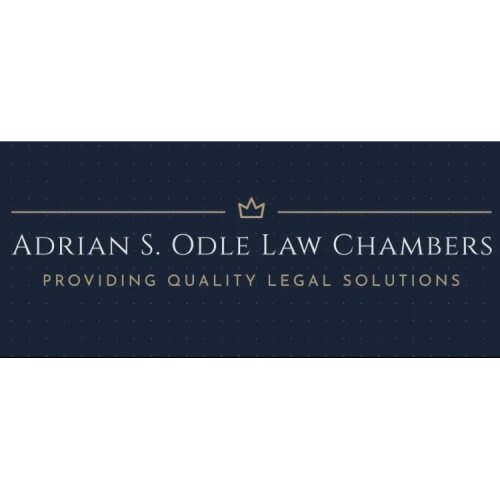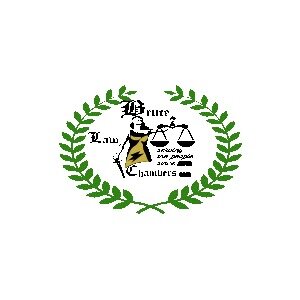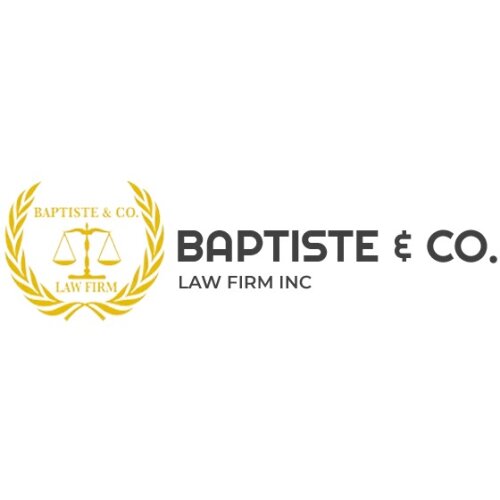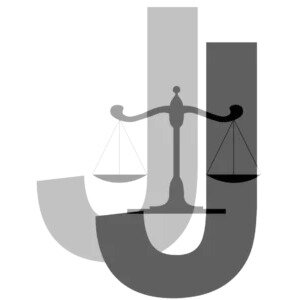Best Conveyancing Lawyers in Saint Vincent and the Grenadines
Share your needs with us, get contacted by law firms.
Free. Takes 2 min.
Free Guide to Hiring a Real Estate Lawyer
Or refine your search by selecting a city:
List of the best lawyers in Saint Vincent and the Grenadines
About Conveyancing Law in Saint Vincent and the Grenadines
Conveyancing refers to the legal process involved in transferring the ownership of real property from one person to another. In Saint Vincent and the Grenadines, conveyancing is governed by a combination of local statutes, regulations, and established legal procedures. The process is essential to ensure that the rights of both the buyer and the seller are upheld, and that the transfer of title is legally recognized. Conveyancing not only covers the sale and purchase of property but also includes transactions such as gifts, inheritance, and leases of land or buildings. Legal professionals play a crucial role in preparing, verifying, and registering the required documents to ensure compliance with the law.
Why You May Need a Lawyer
There are several situations where consulting a lawyer for conveyancing in Saint Vincent and the Grenadines becomes necessary:
- To prepare and review contracts for the sale or purchase of property.
- To conduct thorough checks on property titles, ensuring that there are no legal obstacles or encumbrances.
- To facilitate the transfer of ownership and ensure that the process complies with local laws and regulations.
- If you are inheriting property and require assistance with the legal transfer.
- To resolve disputes that may arise regarding property boundaries or shared access rights.
- When dealing with complex transactions such as property developments, mortgages, or leases.
- For foreign buyers or sellers who are unfamiliar with local legal requirements.
Lawyers ensure that the transaction is valid and that your interests are protected throughout the process.
Local Laws Overview
Conveyancing in Saint Vincent and the Grenadines is primarily regulated by statutes such as the Conveyancing and Law of Property Act, the Registered Land Act, and related regulations. Key elements of the conveyancing process include:
- Conducting a title search to verify ownership and ascertain if there are any liens or encumbrances.
- Drafting and executing a sale agreement that outlines the terms of the transaction.
- Paying applicable stamp duties and property taxes as required by law.
- Deed registration at the Land Registry, which records the new ownership and makes it legally binding.
- Complying with restrictions or guidelines for foreign ownership if the buyer is not a citizen or resident.
- Ensuring that any building or development complies with local planning and environmental regulations.
The legal framework is designed to protect both parties and promote transparency, so careful attention to these procedures is essential.
Frequently Asked Questions
What is the role of a lawyer in conveyancing?
A lawyer ensures all legal requirements are met, drafts and reviews documents, checks titles, and oversees the transfer of ownership to protect your interests.
Can foreigners buy property in Saint Vincent and the Grenadines?
Yes, foreigners can purchase property but may need to apply for an Alien Landholding Licence and comply with specific legal and financial requirements.
What documents are required to transfer property?
Typically, you need the title deed, an agreement of sale, proof of payment of stamp duty, tax clearance, and identification documents for both parties.
What are stamp duties and how much do they cost?
Stamp duties are taxes on legal documents related to property transfers. The rates vary depending on the transaction value and whether the buyer is a citizen or non-citizen.
How long does the conveyancing process take?
The process usually takes several weeks but can be longer if there are title issues or delays in obtaining government approvals.
What happens if the property has a mortgage or lien?
Such encumbrances must be resolved before or during the conveyancing process, often by ensuring the mortgage is paid off from the sale proceeds.
Who is responsible for paying legal and transaction fees?
Both buyers and sellers typically pay their own legal fees. The buyer generally pays stamp duties and registration fees, but specific arrangements can be negotiated.
How do I verify the legitimacy of the property title?
Your lawyer will conduct a title search at the Land Registry to confirm the seller's ownership and ensure there are no disputes or encumbrances.
Do I need to be physically present during the conveyancing process?
Not always. You can appoint a lawyer to act on your behalf through a power of attorney if you cannot be present.
What should I do if there is a dispute after the sale?
Contact your lawyer immediately. Disputes can often be resolved through negotiation, but some cases may require mediation or litigation.
Additional Resources
The following organizations and resources provide invaluable assistance for those involved in conveyancing:
- Land and Surveys Department - Handles land registration, title searches, and related services.
- Saint Vincent and the Grenadines Bar Association - Directory of legal professionals qualified in conveyancing.
- Ministry of Legal Affairs - Provides information on legal processes and applicable laws.
- Local real estate agencies - Often have resources on buying and selling property legally.
- Financial institutions and mortgage providers - Offer advice on financing property transactions.
Next Steps
If you are considering buying, selling, or transferring property in Saint Vincent and the Grenadines, it is crucial to seek professional legal assistance. Start by gathering all available documents related to the property and outlining your intended transaction. Contact a qualified lawyer or conveyancer who specializes in property law. Discuss your situation in detail, and let them guide you through the necessary searches, documentation, and filings. Always ensure that all legal requirements are fully satisfied before making any payments or finalizing the transfer.
Being proactive and informed can save you significant time, money, and stress during the conveyancing process.
Lawzana helps you find the best lawyers and law firms in Saint Vincent and the Grenadines through a curated and pre-screened list of qualified legal professionals. Our platform offers rankings and detailed profiles of attorneys and law firms, allowing you to compare based on practice areas, including Conveyancing, experience, and client feedback.
Each profile includes a description of the firm's areas of practice, client reviews, team members and partners, year of establishment, spoken languages, office locations, contact information, social media presence, and any published articles or resources. Most firms on our platform speak English and are experienced in both local and international legal matters.
Get a quote from top-rated law firms in Saint Vincent and the Grenadines — quickly, securely, and without unnecessary hassle.
Disclaimer:
The information provided on this page is for general informational purposes only and does not constitute legal advice. While we strive to ensure the accuracy and relevance of the content, legal information may change over time, and interpretations of the law can vary. You should always consult with a qualified legal professional for advice specific to your situation.
We disclaim all liability for actions taken or not taken based on the content of this page. If you believe any information is incorrect or outdated, please contact us, and we will review and update it where appropriate.
Browse conveyancing law firms by city in Saint Vincent and the Grenadines
Refine your search by selecting a city.












